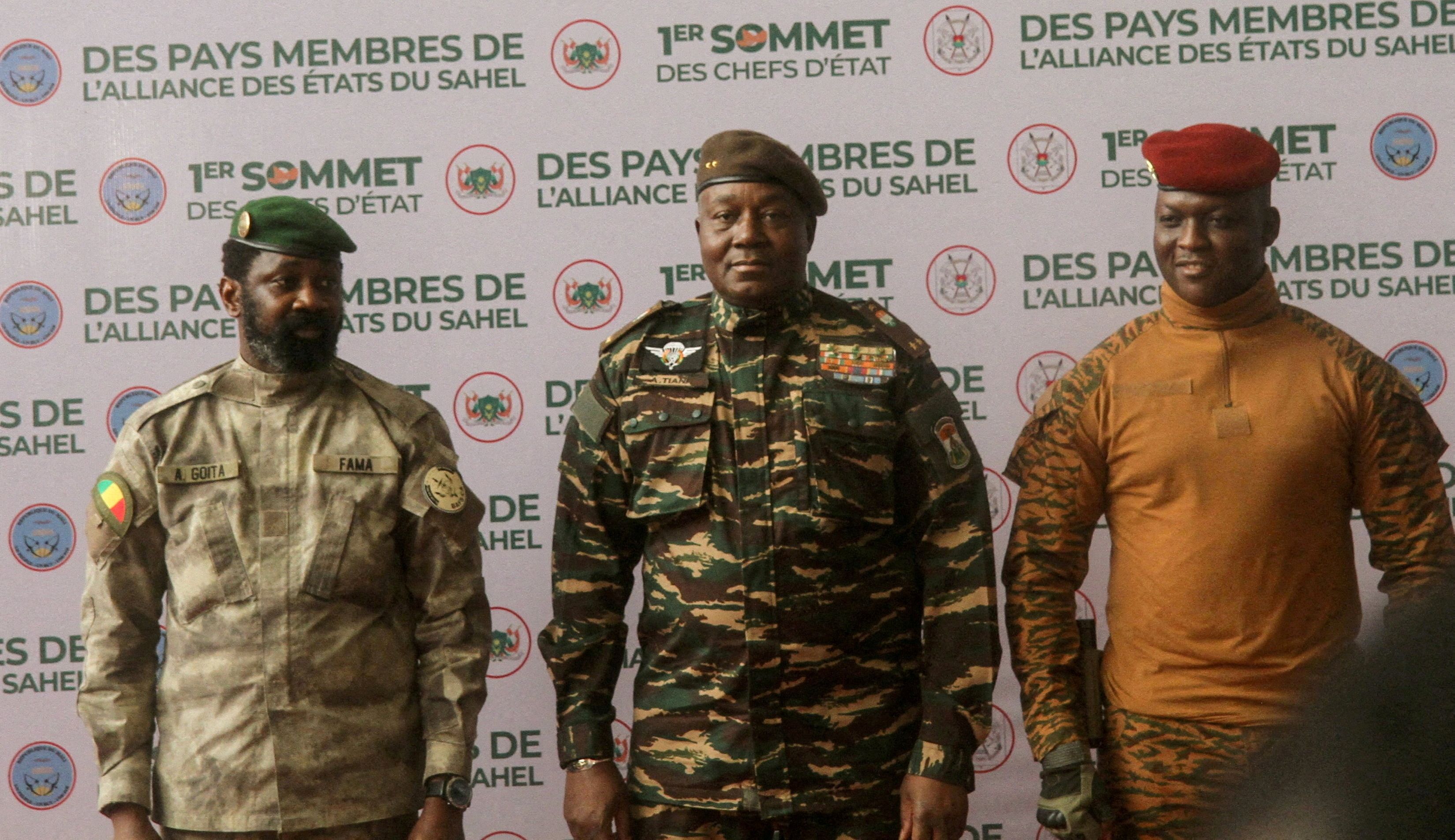On September 17, the al-Qaida affiliate Jama‘at Nusrat al-Islam wa-l-Muslimin (the Group for Supporting Islam and Muslims, or JNIM) humiliated Mali’s military-run government by attacking a police training school in the capital Bamako, as well as the country’s national airport.
The death toll remains unclear, as the country’s authorities seem to be deliberately refusing to give a specific number, but it appears that at least 77 people were killed. This attack is the clearest demonstration yet of the junta’s failure, after four years in power, to make good on its promise of securing the country.
Although who could secure Mali? The Malian state, both under civilian presidents of the past and now under military authorities, has been skeletal. Since the rebellion of 1990, whenever authorities have been confronted with a major rebellion, they have not been able to enforce peace; authorities have adopted strategies ranging from formal negotiations, selective crackdowns, acquiescing to foreign deployments or, in various ways, dissembling and gaslighting.
France thought, from 2013 through the coup of 2020, that it had jihadists on the run, but insecurity worsened and France’s welcome evaporated. Since taking power, the current junta has combined crackdowns and gaslighting. Some rebels and communities are subjected to drone strikes and/or massacres, while other conflict zones are left to fester — all while the authorities use a tightly controlled media environment to blanket Bamako, in particular, with a kind of alternate reality.
JNIM’s attack was so devastating to the junta not just because it claimed lives and disrupted institutions, but also because it trashed the narrative, and did so in the storyteller’s own house.
If the junta represents a dead end for Mali, that does not mean a change is coming any time soon. Political space is tightly controlled, the military has the support of Russia as well as the enthusiastic camaraderie of two junta-run neighbors, Niger and Burkina Faso, and even a brazen attack on the capital is unlikely to dislodge President Assimi Goïta and his clique.
Washington has three broad paths available to it, with each requiring considerable patience. First, Washington can hope that eventually it will once again have a viable counterterrorism partner in Bamako, whether in the form of a matured and chastened form of the junta, or in the form of a successor, civilian-led government. This would be a pitiable outcome, especially if a sham election and a little remorse prove sufficient to bring Bamako, somewhere down the line, back into Washington’s good graces without any underlying substantive change in governance.
Second, Washington can try to contain the instability in Mali — and in neighboring Burkina Faso and Niger. This represents more or less the current approach, as Washington (and Paris) turn to the coastal West African countries of Cote d’Ivoire, Ghana, Togo, and Benin as new partners and potential sites for drone bases and more. Attempting to fashion the coastal countries into “bulwarks against extremism,” however, risks repeating past mistakes, creating self-fulfilling prophecies (for example, by encouraging governments to target and tar various communities as extremists), and/or distorting domestic politics by pumping money into unaccountable security forces and looking the other way at civilians’ abuses of office.
Third, Washington can quietly put itself forward as encouraging negotiations and de-escalation. It would be worth leaving the door open to the governments in Bamako, Ouagadougou, and Niamey, not to rush back in with counterterrorism dollars at the first hint of a welcome, but to urge the juntas to consider talking with their enemies.
Peace deals with conventional rebels can be frustrating, flawed, and prone to years of wrangling — by all sides, as the ill-fated Algiers Accord (a peace deal for northern Mali) proved from 2015-2024. Yet such peace deals can tamp down tensions and offer a sliver of hope for durable and meaningful resolution of deep tensions between national capitals and aggrieved communities.
Peace deals with jihadists, meanwhile, are even harder to countenance — yet the alternative appears to be endless war between, again, tenacious insurgents and skeletal states. In such wars, the insurgents cannot ever hope to control national capitals, as the international state system has even less room for a JNIM-run Mali than it does for a Taliban-run Afghanistan. Yet neither can the juntas (or the civilians who preceded them and who may eventually succeed them) hope to defeat JNIM and its peers; the resources are too limited, the territories too vast, the terrain for recruitment too favorable, especially as each ruler’s mistakes compound those of his predecessor.
The tragedy for Mali, Burkina Faso, and Niger appears to be that there is no apparent limit to how bad the conflict can get. Deaths have soared, particularly in Mali and Burkina Faso; insurgencies expand by fits and starts, and the authorities enflame the situation in various ways: empowering paramilitaries only to get them killed, reigniting old conflicts alongside new ones, and frittering away precious time and resources in diplomatic squabbles.
The most promising and realistic way out appears to lie not in the bravado of the juntas somehow magically turning the tide, nor in the hope that popular protests will oust juntas and bring in benevolent civilians, nor yet in the vague idea that there is a one-size-fits-all formula for “counterinsurgency” and “good governance” that could be cooked up in a World Bank conference room or a USAID mission.
Rather, someone in Bamako, Ouagadougou, and Niamey will have to, as many who sat in presidential palaces before them did, cut deals with the guys with guns. Otherwise the region will remain caught between the insurgents who won’t quit and the soldiers who can’t win.
















